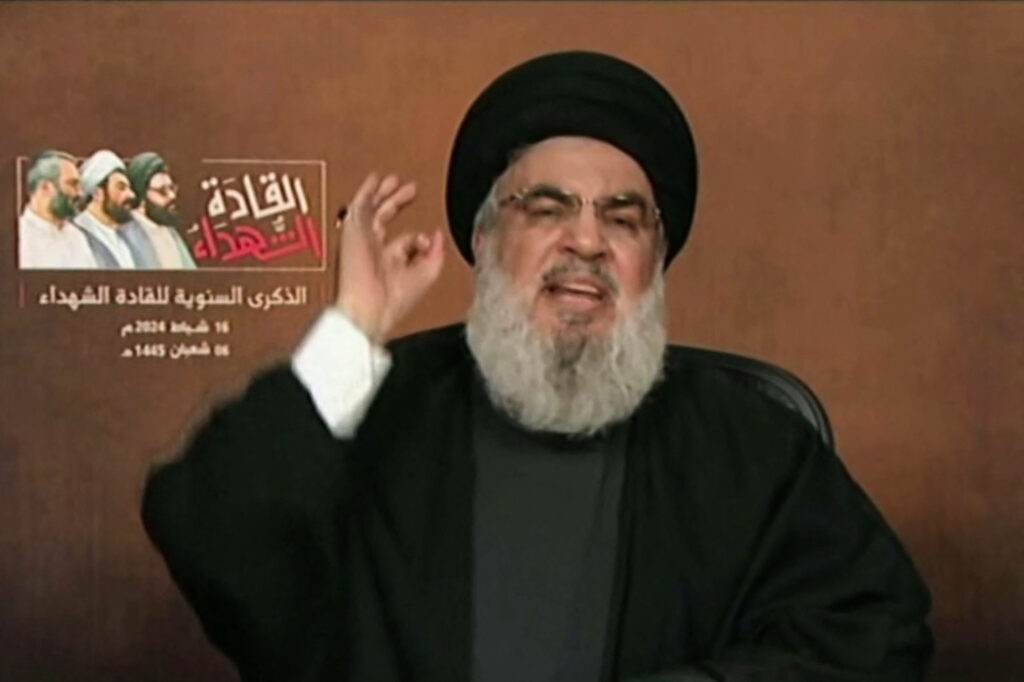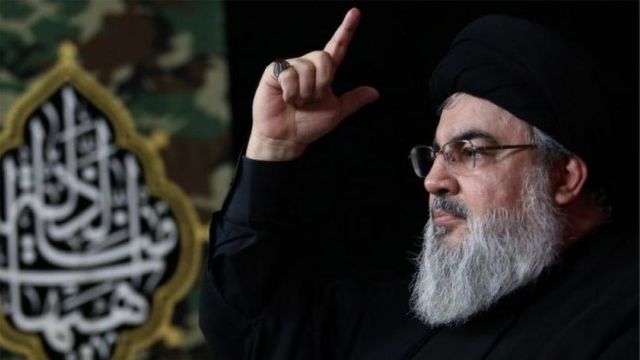Who Will Lead Hezbollah After Hassan Nasrallah’s Martyrdom? The international scene in the Center East is continually moving, and the future administration of Hezbollah, especially following the possible suffering of its well established pioneer, Hassan Nasrallah, brings up huge issues. As we dig into this subject, we will investigate who could climb to the administrative role inside the association, the ramifications for Hezbollah’s methodology, and what this change could mean for Lebanon and the more extensive locale.
Figuring out Hezbollah’s Initiative Structure
Hezbollah, formally known as the Party of God, is a Shiite Islamist political and aggressor bunch situated in Lebanon. Established in the mid 1980s, it has since developed into a strong substance with huge impact in both Lebanese governmental issues and local contentions. In charge, Hassan Nasrallah has been a crucial figure, known for his magnetic authority and key keenness. Who Will Lead Hezbollah After Hassan Nasrallah’s Martyrdom?

Hezbollah’s authority structure is somewhat murky, which has made foreseeing future pioneers testing. Notwithstanding, the association is known to have a board based framework, with the Shura Council assuming a critical part in direction. This chamber comprises of key figures inside the party, including military, political, and strict pioneers.
Expected Replacements to Hassan Nasrallah
As hypothesis encompasses Hassan Nasrallah’s possible suffering, a few key figures arise as logical replacements. Understanding their experiences and jobs inside Hezbollah can give knowledge into the association’s future course.
1. Sayyed Hashem Safieddine
One of the main competitors is Sayyed Hashem Safieddine, who presently fills in as the administrator of Hezbollah’s Executive Council. His longstanding obligation to the association, joined with his political experience, positions him as a solid competitor for initiative. Safieddine has been instrumental in dealing with Hezbollah’s interior undertakings and has a profound comprehension of its military and political procedures.
2. Mohammed Raad
Another huge figure is Mohammed Raad, the top of Hezbollah’s parliamentary alliance. His involvement with Lebanese legislative issues could demonstrate priceless as the party explores the intricacies of administration following Nasrallah’s likely takeoff. Raad’s authority style is portrayed by logic, which might engage both Hezbollah’s base and more extensive Lebanese society. Who Will Lead Hezbollah After Hassan Nasrallah’s Martyrdom?.
3. Sheik Naim Qassem
Sheik Naim Qassem, the representative secretary-general of Hezbollah, is likewise a conspicuous competitor. Known for his profound philosophical roots inside the association, Qassem’s job has frequently been to express Hezbollah’s vision and keep up with its philosophical intelligibility. His initiative could see a continuation of Nasrallah’s strategies yet with a potential shift towards a more powerful commitment to local coalitions. Who Will Lead Hezbollah After Hassan Nasrallah’s Martyrdom?.
4. Imad Moughnieh’s Successor
In conclusion, the likely replacement to the late Imad Moughnieh, a critical military commandant, could likewise arise as a pioneer. His replacement could welcome a recharged center around military procedure, especially considering Hezbollah’s continuous struggles with Israel and its contribution in the Syrian nationwide conflict.
Suggestions for Hezbollah’s Strategy

The progress of authority inside Hezbollah could fundamentally affect its functional and political procedures. Every potential replacement brings an exceptional viewpoint and put forth of boundaries that could shape the association’s future.
1. Progression versus Change
One of the essential contemplations is whether Hezbollah will seek after a methodology of congruity or change. Should Hashem Safieddine or Mohammed Raad start to lead the pack, we might observer a continuation of Nasrallah’s strategies, zeroing in on keeping up with the state of affairs in regards to Hezbollah’s tactical capacities and political impact in Lebanon. On the other hand, an initiative change under Sheik Naim Qassem could flag a shift towards a more forceful local stance.
2. Territorial Relations
The new administration will likewise need to explore Hezbollah’s associations with other territorial entertainers. The association has generally kept up serious areas of strength for with Iran and Syria, yet the developing international environment requires a nuanced approach. A replacement zeroed in on discretion could look to fortify these unions while adjusting pressures from the global local area.
3. Homegrown Challenges
In Lebanon, the new pioneer will confront huge homegrown difficulties, including monetary unrest and political fracture. How they address these issues will be basic for keeping up with Hezbollah’s help among its base. An emphasis on financial improvement could upgrade the association’s authenticity and cement its situation inside Lebanese society.
The Fate of Hezbollah in a Changing Landscape
The expected suffering of Hassan Nasrallah marks a vital second for Hezbollah. The association’s future administration won’t just decide its interior elements however will likewise impact the more extensive territorial scene.
1. Fortifying Interior Cohesion
One of the critical difficulties for the new pioneer will be to keep up with interior attachment inside Hezbollah. The association has seen different groups foster throughout the long term, each with its own belief systems and methodologies. A fruitful pioneer should bind together these groups to guarantee a durable way to deal with both administration and military tasks.
2. Adjusting to New Threats
Hezbollah’s new administration should likewise be ready to address arising dangers, both from inside Lebanon and from outside enemies. The developing elements with Israel, the US, and other provincial players require an essential reconsideration that focuses on both military status and political commitment.
3. Exploring Global Pressure

At long last, the approaching chief should explore expanding worldwide strain. With Hezbollah assigned as a psychological oppressor association by numerous nations, the initiative should embrace a system that mitigates these tensions while safeguarding the association’s center mission and values.
Conclusion
Taking everything into account, the possible affliction of Hassan Nasrallah suggests huge conversation starters with respect to the eventual fate of Hezbollah’s administration and system. As we have investigated, different applicants have arisen, each with particular qualities and likely ways to deal with driving the association. The ramifications of this progress will resound all through Lebanon and the more extensive district, affecting political elements, military techniques, and global relations.
By intently examining the possible replacements and their logical methodologies, we gain important bits of knowledge into the eventual fate of Hezbollah in a consistently changing international scene.